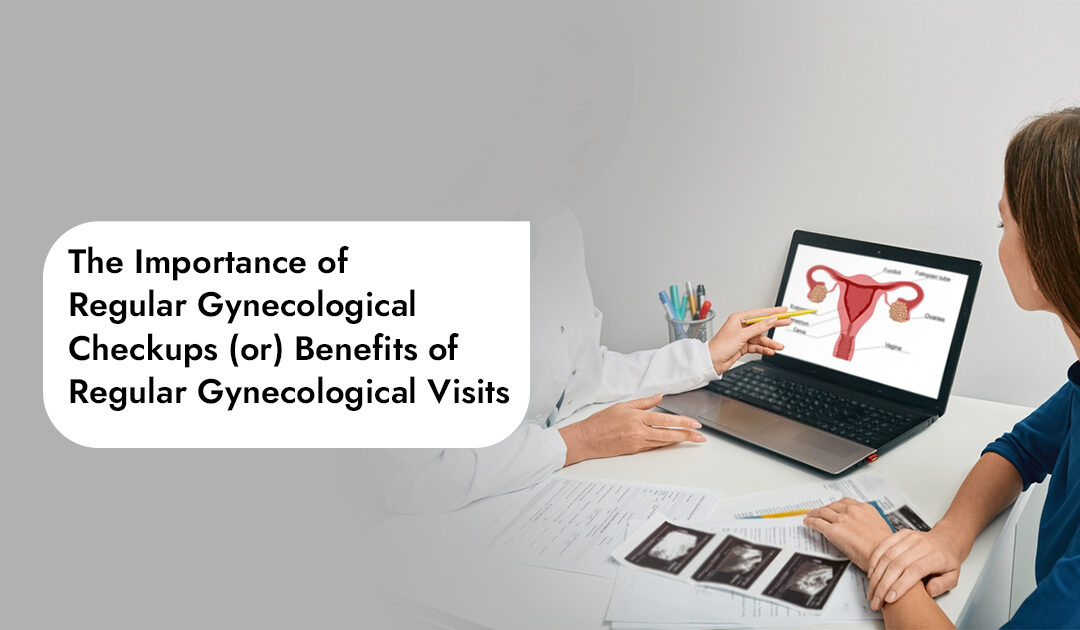When we talk about maintaining optimal health, regular medical checkups are key, and for
women, gynaecological issues play a crucial role. These checkups are not just for emergencies
and immediate concerns but are essential for navigating reproductive health and preventive
care. Whether it is the onset of adolescence, planning a family or menopausal symptoms,
regular visits to a gynaecologist provide significant insights and interventions for every single
stage of life.
What Happens During a Gynecological Checkup?
Gynaecological exams are more than just a routine visit; they are the opportunity to assess and
safeguard your reproductive health. These visits may include a variety of screenings and tests,
including:
● Pelvic Exam: To evaluate reproductive organs like the uterus and ovaries.
● Pap Smear: To check for cervical cancer or early changes that could lead to it.
● Breast Exam: To check for any lumps or changes that could be an indicator of breast
cancer.
● STI Testing: To detect and treat sexually transmitted infections early.
● Menstrual Health Discussions: To discuss irregular cycles, painful periods, or hormonal
issues.
Your doctor might also discuss topics like contraception, fertility, menopausal symptoms, and
lifestyle factors such as diet and exercise, tailoring the conversation to your specific health
needs.
When Should You Start Gynecological Checkups?
Guidelines suggest that women should begin seeing a gynaecologist by age 21 or within three
years of becoming sexually active. However, younger girls may need to visit earlier for issues
like delayed menstruation, painful periods, or other reproductive concerns. From adolescence
through menopause, these checkups are a cornerstone of proactive health care.
Why Are Regular Gynecological Visits Important?
Gynaecological appointments go beyond just dealing with urgent health issues—they play a
vital role in preventive care and overall wellness for women. These visits allow for the early
detection of health problems, the prevention of future issues, and the management of chronic
conditions.
Early Detection:Many gynaecological conditions, such as cervical cancer, ovarian cysts, and sexually
transmitted infections, often show no symptoms in their early stages. Regular exams can help
catch these conditions early, when treatment is most effective.
For example, a routine Pap smear or HPV test can detect precancerous changes in the cervix
before they develop into cancer.
Family Planning and Fertility:
Whether it is exploring birth control options or trying to conceive, gynaecological checkups
provide all the guidance needed. From contraceptive advice to preconception counselling, these
visits empower women to make informed decisions about their reproductive health.
Navigating Menopause:
Menopause is a natural transition but often comes with symptoms like hot flashes, mood
swings, and changes in bone density. Regular visits to your gynaecologist ensure that these
symptoms are addressed effectively, whether through lifestyle adjustments, hormonal
treatments, or bone health evaluations.
Reproductive Health Awareness:
Gynecological appointments aren’t just about addressing current issues—they’re an opportunity
to understand your body better. Learning about self-examinations, recognizing abnormal
symptoms, and making lifestyle changes are integral to maintaining long-term health.
Mental Health Support:
Women’s physical and mental health are deeply interconnected. A gynaecologist can be a
trusted resource for addressing concerns related to anxiety, depression, or postpartum
struggles. These checkups provide a safe space to discuss emotional well-being alongside
physical health.
Adapting Screenings to Your Needs:
The type and frequency of screenings you need depend on your age, health history, and risk
factors.
● Women aged between 21 and 29 should have a Pap smear every three years.
● From age 30 onwards, co-testing for HPV and Pap smears every five years is often
recommended.
● Postmenopausal women may require bone density testing to monitor for osteoporosis.
Taking Charge of Your Health:
Making gynecological visits a regular part of your health routine is a proactive way to prioritize
your well-being. Beyond physical examinations, these checkups foster a deeper understanding
of your body, empowering you to make informed decisions about your health and lifestyle.
Gynecological examinations are more than mere routine visits, they are essential measures for
safeguarding your overall well-being. By making these appointments a priority, you’re not only
identifying possible concerns early on but also gaining the insight and assistance needed to
lead a healthier lifestyle. So, when did you last have an appointment? If it has been some time,
consider this a reminder to book your next checkup. Your health will always be invaluable!

